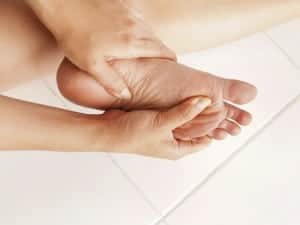
Treating Heel Pain and Plantar Fasciitis
Your feet support and carry around the entire weight of your body every single day. This in itself can induce foot discomforts and needed relief. Yet when excess foot discomforts escalate to full-on pain, there may be something more serious going on with your feet. Symptoms such as intense heel pain and tenderness are key signs of conditions like plantar fasciitis, and should be taken care of before pain severity becomes immobilizing. Our podiatry services at Beaver Valley Foot Clinic are able to rectify problematic foot issues in order to get you back on your feet with neither worry nor pain.
What Are Causes Of Plantar Fasciitis?
The following factors may lead to fascial inflammation and pain:
- a rise in level of activity (like starting a walking or running program)
- The foot’s composition or form
- The ground you are standing, moving, or running on
- What kind of footwear you are donning
- The burden you bear
Less frequently, other illnesses like lupus or rheumatoid arthritis might cause plantar fasciitis to worsen.
–Heel Pain & Other Symptoms
When experiencing abnormal foot discomforts or foot pain of any kinds, do not hesitate to set up a simple exam with our a healthcare professional. Any problem will inevitably worsen when left untreated, and when it comes to your bipeds, pain can quickly elevate from walking discomfort to complete immobility from over-use of injured tissue.
-Plantar Fasciitis
Plantar simply means the bottom of the foot. Fasciitis breaks down to meaning rope-like or band-like connective tissues (fascia), and painful irritation (suffix itis). The plantar fasciitis tissue is found directly on the bottom of each of you feet, and provides a cushioned connection between the heel bone (calcaneus) and each individual toe. This tissues is constantly being used, and if irritated it simply gets re-injured, since the feet are used to walk at least a small amount every day. Obviously this makes for a challenge while seeking treatment. But there is an ideal solution that is permanently rectifying.
–ESWT, the Ideal Treatment
Extracorporeal Shockwave Therapy, or ESWT, is the most ideal treatment for plantar fasciitis and other similar foot irritations because of it’s quick healing permanence. During the approximately 20 minute treatment, a small amount of ultrasound gel is applied to the heel, and a specialized device is held under the heel. This procedure is done under ultrasound guidance so that the podiatrist is able to pin-point the exact parts of the plantar fascia that need treatment. Though there may be a bit of swelling post-treatment, most patients are able to get back on their feet like normal within only a couple of short days.
Can plantar fasciitis be mistaken for other conditions, such as Achilles tendonitis?
Yes, plantar fasciitis can be mistaken for other conditions, including Achilles tendonitis, because both cause heel pain. However, there are distinct differences between the two:
Plantar Fasciitis:
– Pain Location: Typically causes pain in the bottom of the heel, especially near the heel bone.
– Pain Timing: Pain is often worst with the first steps in the morning or after periods of inactivity.
– Cause: Inflammation of the plantar fascia, a thick band of tissue that runs across the bottom of the foot and connects the heel bone to the toes.
Achilles Tendonitis:
– Pain Location: Usually causes pain and stiffness at the back of the heel or just above the heel in the Achilles tendon.
– Pain Timing: Pain often increases with activity and can be accompanied by swelling or a thickening of the tendon.
– Cause: Inflammation or degeneration of the Achilles tendon, which connects the calf muscles to the heel bone.
Can running or jogging exacerbate plantar fasciitis?
Certainly! Running or jogging can exacerbate plantar fasciitis due to several reasons:
- Repetitive Stress: Running involves repetitive impact on the feet, which can strain the plantar fascia, leading to inflammation and pain.
- Improper Footwear: Wearing shoes that do not provide adequate support or cushioning can increase the risk of plantar fasciitis.
- Overuse: Running too often or increasing mileage too quickly without proper rest can overload the plantar fascia and lead to injury.
- Running Surface: Hard surfaces like concrete can increase the impact on the feet, potentially worsening plantar fasciitis.
- Biomechanical Factors: Issues like overpronation (excessive inward rolling of the foot) can also contribute to plantar fasciitis when running.
- Ignoring Symptoms: Continuing to run through pain can aggravate plantar fasciitis and delay healing.
Contact our Beaver Valley Foot Clinic professionals today for more information on diagnosing and treating your plantar fasciitis, or other foot discomforts. Our considerate staff is expertly trained, with generous experience in the podiatry field. we accurately diagnose, treat, and better each patient with our outstanding services, no matter what your problematic foot issues may be. Call now at (878) 313-3338, or visit one of our five convenient locations today!
